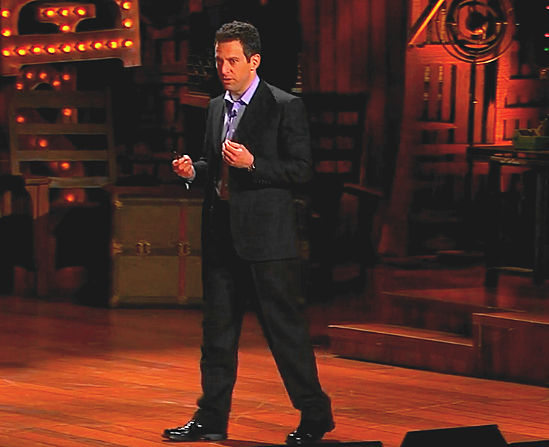But if questions affect human well-being
但如果這個問題是影響到人身幸福的
then they do have answers, whether or not we can find them.
他們是有答案的,無論我們找不著得到
And just admitting this -- just admitting that there are right and wrong answers to the question of how humans flourish
承認吧,當我們嘗試解決人類幸福的問題是可能會有錯誤答案的
will change the way we talk about morality,
承認這個事實能改變我們討論道德的方法
and will change our expectations of human cooperation in the future.
也會改變我們在合作共創未來時所期待的結果
For instance, there are 21 states in our country where corporal punishment in the classroom is legal,
舉例來說,在美國還有21個州在課堂上進行體罰是合法的
where it is legal for a teacher to beat a child with a wooden board, hard,
老師可以合法的用木板
and raising large bruises and blisters and even breaking the skin.
把孩子打得瘀傷、起水泡、甚至破皮

And hundreds of thousands of children, incidentally, are subjected to this every year.
每年有千百個孩子都在遭受這樣的待遇
The locations of these enlightened districts, I think, will fail to surprise you.
而且我認為,你會很吃驚,這都是些什么省份
We're not talking about Connecticut.
不是康涅狄格州
And the rationale for this behavior is explicitly religious.
宗教往往是這些做法背后的理由
The creator of the universe himself has told us not to spare the rod,
創造宇宙的造物主說,告訴我們不要”不忍用仗“
lest we spoil the child -- this is in Proverbs 13 and 20, and I believe, 23.
不然會寵壞孩子,這是《舊約箴言》第13章20和23節
But we can ask the obvious question: Is it a good idea, generally speaking,
我們可以問一個簡單的問題,以常理判斷
to subject children to pain and violence and public humiliation
讓孩子經歷這樣的痛苦,暴力和在眾人面前被羞辱
as a way of encouraging healthy emotional development and good behavior?
會帶來健康的情緒發展和良好行為模式嗎?
Is there any doubt that this question has an answer, and that it matters?
我們之中有人懷疑這個問題不但有解答,而且對我們來說很重要?











